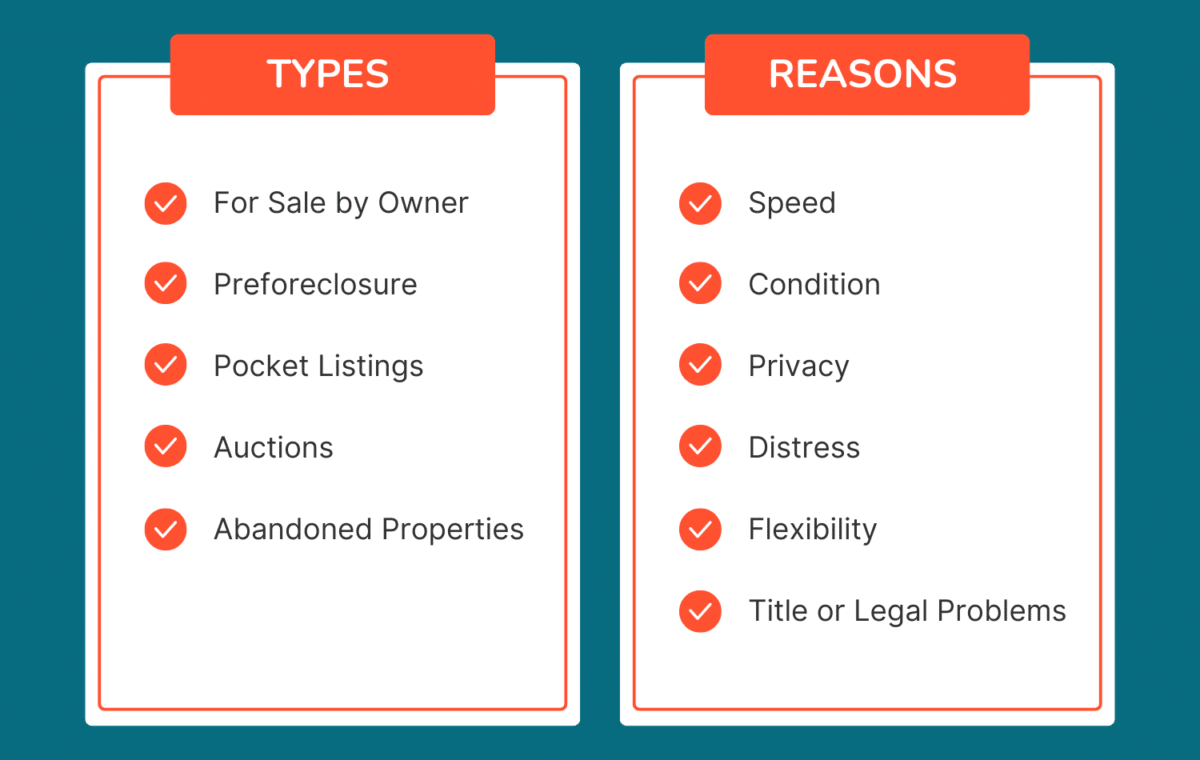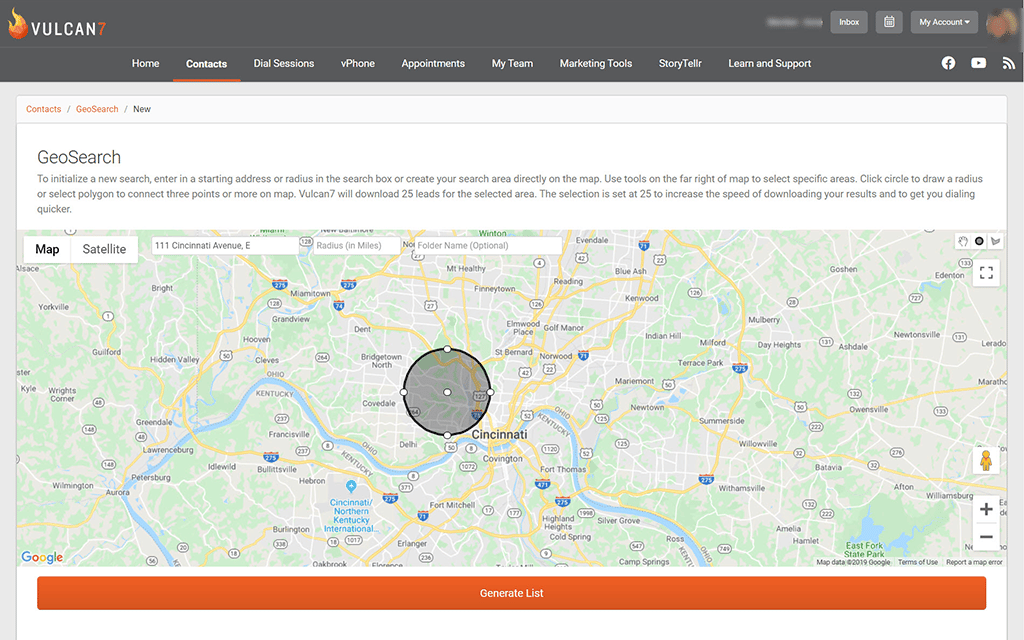We’re going off-the-grid … kind of. If you’ve ever been in a situation where your buyer isn’t finding the right property, or it’s a low inventory market, and you’re wondering how to drum up some more deals—you’re in the right place. I’m unlocking the secrets of how to find off-market properties so you can unveil more options and “wow” your clients. Let’s dive into what qualifies a property as off-market, the pros and cons of these types of properties, and how to find them.
What Are Off-market Properties?
Off-market properties may seem like a more general term for pocket listings, but there actually is a difference between the two. While pocket listings can be deemed off-market, not all off-market properties can be considered pocket listings. Let me break it down for you.
Most off-market properties remain hidden from the general public because they are not listed on the MLS or shown in traditional real estate advertising. However, there are other websites where these homes may be listed and alternative methods to find such properties, like auctions or for sale by owner (FSBO) properties. Take a look at the different types of off-market properties and some reasons these homes are sold this way.

Pocket listings tend to be a more familiar term, but they are only one type of off-market property. These properties are still represented by a listing agent with an exclusive right to sell the property, but the agent cannot advertise the property on the multiple listing service (MLS). With this type of listing, the agent has to follow a different set of marketing guidelines while still representing the seller.
Pros & Cons of Buying Off-market Properties
Off-market properties will always be a part of real estate. They’re great for giving buyers and investors access to all kinds of options, which can be super helpful in a tough market. Let’s chat about the pros and cons so you can help your clients make informed decisions that will lead them to their dream property.
It is up to the client to decide whether the pros of making an off-market purchase outweigh the cons. However, helping your clients find these special properties, explaining the different aspects of these deals, and guiding them through these transactions can really set you apart from your competitors.
11 Ways on How to Find Off-market Properties
Finding off-market properties is like searching for treasure. You might get lucky, but it’s all about knowing where to look. Once you know how to find them, it’s a great selling point to mention during buyer consultations. So, let’s start digging and find some hidden gems!
1. Tap into Your Agent Network
One way to find potential properties is to connect with real estate agents who work in the area your buyer is interested in. These agents might have off-market properties or be able to share insider knowledge about other agents’ listings. Start with the agents in your office. Reach out by sending an email with what your client is looking for. You can also use the MLS to search for agents with recent sales in the area and reach out to them.
2. Go Driving for Dollars & Door-knocking
Put your boots on the ground in neighborhoods where your buyer would like to make a purchase. Look for distressed properties and for sale by owner (FSBO) signs, or knock on doors to talk to homeowners in the area. Building personal connections with the community will help you stand out as the first person they think of when a property becomes available. Even if no listings are available immediately, you can still establish yourself as a trusted real estate agent.
3. Send Direct Mail
It is a common practice to send direct mail, such as postcards or newsletters, to homeowners informing them about interested buyers. However, you can take this strategy to the next level by being more specific in your approach. Run a search in the MLS for homeowners who purchased seven to 10 years ago. These homeowners may be interested in upgrading or downsizing their property.

4. Make Cold Calls
Working with FSBOs or expired listings may initially seem like cold calling. However, I like to think of them as warm leads because you know these sellers are actively looking to sell their property. This is a great opportunity to get your buyers in front of listings that could be a perfect match for them. You can use the MLS or platforms like Vulcan7 to compile a list, and then it’s time to pick up the phone and start making calls!
5. Partner With Banks & Credit Unions
Financial institutions often have customers whose mortgages go into default and need options. Building solid relationships with these institutions lets you tap into a goldmine of potential off-market properties. Especially if you have ready, willing, and able buyers that sellers can leverage, developing these relationships may take time and effort, but the payoff is worth it. Start by visiting local banks and credit unions with an example of your comparative market analysis (CMA) to show your commitment to partnering with them and the value you can provide to their clients.
6. Work With Homebuilders
Most homebuilders do not put their inventory on the MLS, so to stay up to date with their upcoming projects and listings, build strong relationships with these companies. Offer to create video tours and promote their properties to your network of clients. This strategy will demonstrate your value to them and could eventually give you early access to new projects. Create a list of homebuilders near you by doing a simple search online. You may be surprised how much these companies value agents who bring buyers to the table.
7. Set Up Niche Marketing
Finding a niche is one of the best ways to boost your business. Consider partnering with attorneys who specialize in the three D’s—diamonds, divorce, and death. These significant life events often result in housing changes, and these attorneys might know about available homes before they hit the market. Search online and ask attorneys you already work with on transactions for recommendations, then start scheduling coffee meetings to discuss how you can work together.
8. Search Through Auction Sites

Real estate auction websites are a powerful tool to find off-market properties such as foreclosures and bank-owned properties. Foreclosure.com is a great resource to look for these properties before they hit the public market. Search for deals by state, county, city, address, or zip code. You can also check with the county courthouse; however, Foreclosure.com works with lending institutions and government agencies to list diverse property types. Once you find a property that could work for your client, conduct due diligence by verifying the auction status and bidding process.
9. Invest Some Time in Investor Sites
Networking is the name of the game in real estate, and as the saying goes, “… it’s who you know.” At first glance, you may think these sites are only useful for investors seeking properties. However, they can also benefit agents searching for off-market deals for any type of buyer. In my experience, sites like Connected Investors, for example, have always been untapped resources for connecting with properties I wouldn’t have otherwise known about while also connecting with potential clients.
10. Leverage Facebook Marketplace & Craigslist
Let’s call it virtual door-knocking! Facebook Marketplace and Craigslist are good sites for scoping out FSBOs. They have become popular search engines and can put you directly in touch with sellers. Carve out some time in your prospecting schedule to look on these platforms daily so you can snag the lead of an off-market property as soon as you see it.
11. Don’t Forget About Rental Property Sites
Look to websites like Craigslist, Rentals.com, VRBO, and Airbnb to find investors who are facing the decision to rent or sell again. When searching for rental properties for your clients to buy, keep an eye out for those that have been on the market for a while. This time frame can indicate that the owner is having difficulty finding tenants and may be open to selling. When taking this approach, be sure to prepare a CMA so that you have the current estimated value ready.
Honorary mention, the MLS: Although you’re looking for off-market properties, you can still use the MLS to find information for your direct mail campaign, expired listings, rentals on the market, and run your CMAs.
Now that you hold the map with an “x” marking the spot—or spots, I should say—you can get to work. Keep in mind that these are just a starting point to help you kick-start your off-market explorations. Pick a few of these methods you’re not currently using and adjust as you see fit for your business. As a reminder, it’s always important to have commission discussions with an off-market seller before moving forward to secure payment for your hard work. Get everything in writing.
FAQs
Why do investors look for off-market properties?
Whether investors are looking for a fix-and-flip or cash flow property, they always consider their profit margins. No competition means they might be able to negotiate a better purchase price.
How do I find comps on an off-market property?
As a real estate agent, I believe that the MLS is always the best place to find comps. Although a home may not be on the market, you can still pull recent sales in the area and get an idea of what similar homes are selling for and what buyers are willing to pay in the current market.
What does temp off-market mean?
Temp off-market means that a home has been temporarily taken off the market. There are various reasons for this status. For example, a homeowner may be doing some repairs or updates to the home or may be out of town and want to resume showings upon their return.
Bringing It All Together
No matter what market conditions you’re facing, knowing how to find off-market properties can always give you a competitive edge. I hope this information has helped you learn more ways to be a successful real estate agent and support your clients in the process. Do you have a unique way to find off-market properties? Let us know in the comments below!










